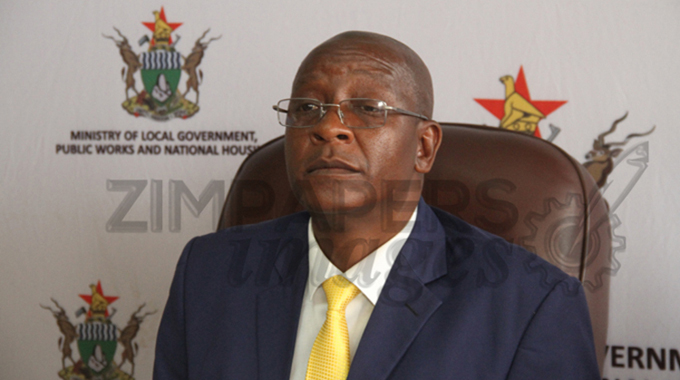UN commends Zimbabwe’s 2013 Constitution

Gibson Nyikadzino-Herald Correspondent
The United Nations Human Rights Council (UNHRC) has commended Zimbabwe’s 2013 Constitution for coming up with mechanisms and systems that adequately eliminate inequalities in the treatment of refugees through fostering national harmony in the country, strengthening democracy and the rule of law.
The commendation was made on Thursday at the 107th session of the council’s Committee on the Elimination of Racial Discrimination in Geneva, Switzerland, where a Zimbabwean delegation is being led by Justice, Legal and Parliamentary Affairs Minister Ziyambi Ziyambi.
According to the UNHRC, Zimbabwe has made significant progress in the strengthening of democracy and the rule of law despite a shadow report submitted by the Crisis in Zimbabwe Coalition (CiZC) that sought to mislead the session alleging that Zimbabwe’s labour laws did not represent the information sector.
In a report presented by the UNHRC, Ms Gay McDougall, a committee expert and country rapporteur, complimented Zimbabwe’s 2013 Constitution for having many “positive components” while another committee member noted the “great achievements” by Zimbabwe “in the legislation and the efforts to strengthen democracy and the rule of law.”
Responding to questions from delegates at the session, Minister Ziyambi said the 2013 Constitution entrenched provisions such as the “prohibition of all forms of discrimination, including on the grounds of race, nationality, colour, tribe, ethnic or social origin.”
“Zimbabwe’s laws have gradually been aligned to this (2013) Constitution, allowing citizens to enforce their rights whenever there were violations. The Constitution prohibits the treatment of any person in an unfair discriminatory manner on any grounds, including race, tribe, place of origin, national or ethnic origin, political opinions, colour, creed or gender.
“According to current data, Zimbabwe’s population is at more than 15 million, and more than 99 per cent belong to the African group.
“The country speaks to regional balance, rather than ethnic balance.
“There is no discrimination against any group of citizens, including those described as ethnic minorities within the country. Such discrimination was specifically prohibited by the Constitution, and the Government has enacted legislation which gave effect to the inclusivity of all citizens,” Minister Ziyambi said.
Ms McDougall also asked Minister Ziyambi to clarify how Government was resolving the 1980s post-independence disturbances in Matebeleland and Midlands provinces known as the Gukurahundi while acknowledging the setting up of the National Peace and Reconciliation Commission (NPRC).
Minister Ziyambi told delegates that the NPRC was set up to ensure national cohesion, solve issues of conflict and not to look at such cases along ethnic lines.
“The NPRC was formed to ensure that national cohesion and harmony was brought into society, and to solve issues of conflict. It is fully functional and carrying out its activities.
“It was not constituted to deal with an ethnic issue,” he added.
The session which started on August 8 until August 30, is reviewing anti-discrimination efforts by Zimbabwe, Benin, Nicaragua, the USA, Azerbaijan, Slovakia and Suriname.










Comments